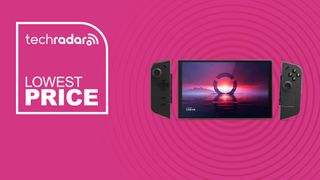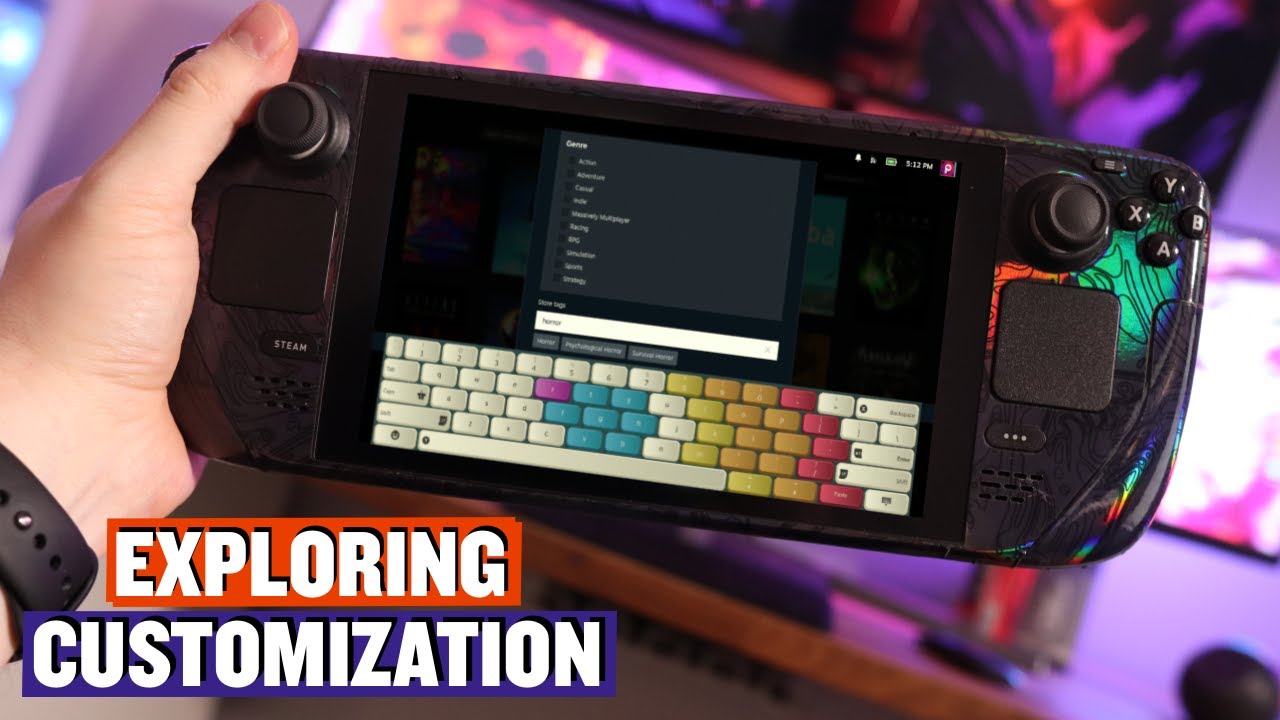The Ultimate Portable Gaming Showdown: Lenovo Legion Go and Beyond
The world of handheld gaming is an ever-evolving landscape, filled with innovative devices that cater to gamers on the go. Among the latest entrants making waves is the Lenovo Legion Go, a device that has quickly transformed into a legitimate competitor to the famed Steam Deck. Recently, it dropped to its lowest price yet, now available for $499, down from a previous price of $699.99. With this price reduction, the Legion Go offers gamers a compelling option for their portable gaming needs.
 The striking design of the Lenovo Legion Go marks its place in the handheld gaming realm.
The striking design of the Lenovo Legion Go marks its place in the handheld gaming realm.
The Legion Go has some impressive specifications, coming equipped with 512GB of storage—expandable via a microSD card. But it doesn’t stop there; Lenovo sweetens the deal with a carrying case and a 65W USB-C charger, ensuring that gamers can not only transport their device safely but also keep their gaming experience at optimal levels.
When broken down, the Legion Go’s performance shines impressively. It’s powered by an AMD Ryzen Z1 Extreme chip, which, alongside 16GB of RAM, propels solid performance. Its 8.8-inch WQXGA touch display boasts a striking 500 nits brightness and a rapid 144Hz refresh rate, providing visuals that are both crisp and responsive. Additionally, the durability of the Gorilla Glass screen further enhances the handheld, which is designed for a lifestyle of mobility and adventure.
Unique Features that Enhance Gameplay
One of the standout aspects of the Legion Go is its remarkable versatility. It features removable controllers, allowing for unique motion control experiences that can bring a new dimension to gameplay. Furthermore, a built-in kickstand offers the convenience of hands-free gaming and viewing, whether watching videos or gaming during commutes. The inclusion of two USB-C ports facilitates charging from either the top or bottom of the device, making it more user-friendly during sessions.
Despite these strengths, the Legion Go’s battery life isn’t quite as robust, offering only about three hours of gameplay on average. Nevertheless, this is a common observation shared across the handheld gaming community, where battery constraints are a factor across nearly all devices. For those interested in a wide array of gaming options, The Nomadic Gamer has curated a list of the best handheld consoles worth investigating.
Comparing Giants: The Legion Go and Steam Deck
The growing rivalry between the Legion Go and the Steam Deck is one to be watched intently. Both devices cater to different segments of the portable gaming market, yet the Legion Go’s unique features and competitive pricing make it a formidable alternative. Additionally, gamers can look forward to an ongoing debate regarding which device delivers a better overall experience.
 The landscape of gaming handhelds continues to grow, with options that rival traditional gaming setups.
The landscape of gaming handhelds continues to grow, with options that rival traditional gaming setups.
The Innovators: The Beth Deck
In an impressive twist within the handheld gaming domain, the Beth Deck emerges as a thrilling DIY project. This innovative design allows users to build their own gaming handheld using Framework’s modular laptop components, presenting a unique challenge for hardware enthusiasts and gamers alike.
This creation, conceived by designer Beth Le, offers a remarkable degree of customization. The Beth Deck can function with any of Framework’s 13-inch mainboards, allowing creators to determine how powerful their device will be. The assembly process is straightforward, requiring no soldering, thereby making it accessible to a wide range of builders. Beth notes, “the whole thing can be assembled in about 15 minutes and disassembled in less than 2 minutes with no soldering required.”
To construct this unique handheld, you’ll need several components, including a Waveshare 8-inch touchscreen and various screws and adapters. While constructing a Beth Deck might set you back around $150 (excluding the Framework parts), the end result is endlessly upgradeable and tailored to your preferences.
A New Era for Classic Games: Red Dead Redemption on PC
The anticipation heightened recently as Red Dead Redemption was finally ported to PC, a game that many felt was long overdue. Officially handled by developers Double Eleven, the port has been received with great enthusiasm due to its seamless performance on gaming systems and handhelds alike.
 The allure of Red Dead Redemption brings its expansive world to a new generation of gamers.
The allure of Red Dead Redemption brings its expansive world to a new generation of gamers.
Upon experiencing this classic on a gaming handheld like the Asus ROG Ally X, players can enjoy a smooth gameplay experience with frame rates maintaining consistency under demanding settings. Many gamers appreciate the stability, as no glitches or long load times interrupt their immersive experience.
The achievements of this port are substantiated by the inclusion of ultrawide monitor support and cutting-edge upscaling technologies from AMD and Nvidia, further enhancing the graphical fidelity. However, it is essential to note that while the port performs well, it does not incorporate significant graphical upgrades like high-resolution textures or a photo mode. For many, the nostalgia and classic dynamics of gameplay outweigh the modern graphical possibilities.
Conclusion: A Bright Future for Handheld Gaming
The gaming handheld landscape continues to flourish as compelling devices like the Lenovo Legion Go and projects like the Beth Deck open up new avenues for creativity and play. Moreover, with beloved classics such as Red Dead Redemption becoming available for portable gameplay, gamers today enjoy unprecedented freedom and flexibility in their gaming experiences.
As technology progresses, we eagerly anticipate more innovations in the realm of handhelds, solidifying their place in our everyday lives as indispensable companions in our gaming odyssey. Whether through custom builds or extraordinary price drops, the future looks promising for portable gaming enthusiasts.
 With rapid advancements, the handheld gaming market grows ever more thrilling.
With rapid advancements, the handheld gaming market grows ever more thrilling.













